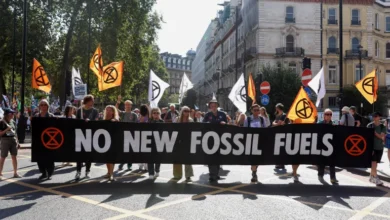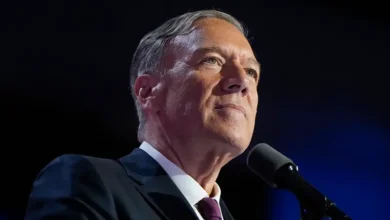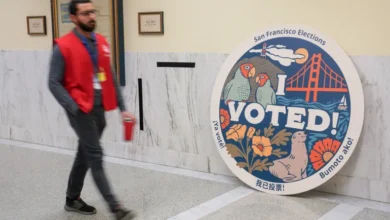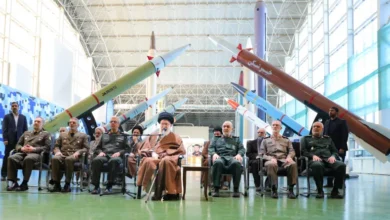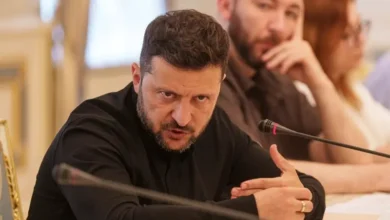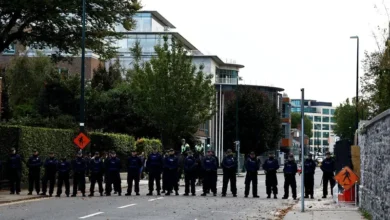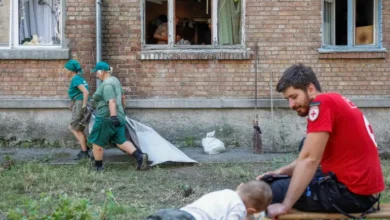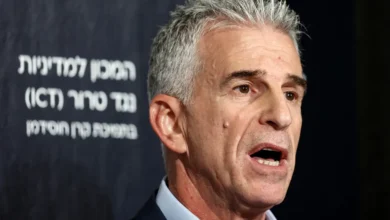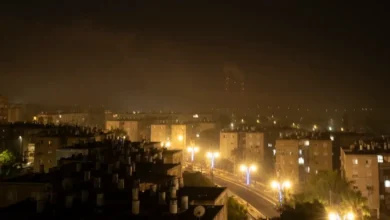Analysis: Russia, Iran strengthen alliance after Syria setback
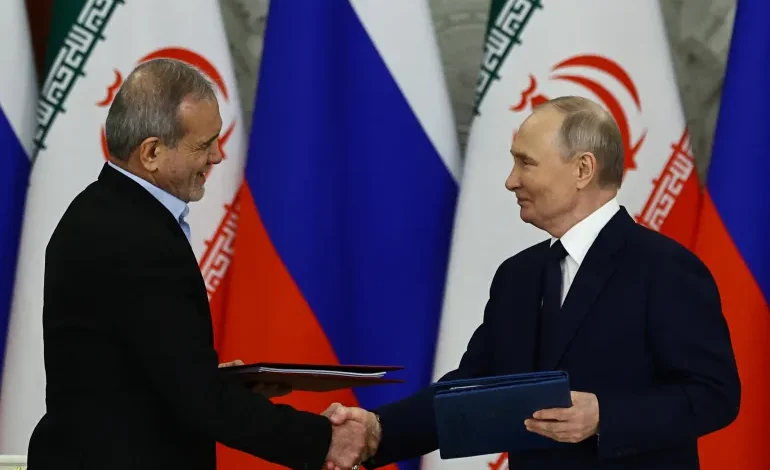
Iran and Russia have finalised a long-delayed cooperation agreement, reinforcing ties between the two countries just as they both face mounting geopolitical pressures.
The 20-year deal, signed by Iranian President Masoud Pezeshkian and Russian President Vladimir Putin in Moscow on Friday, enhances military and defence cooperation, and includes a clause that neither country would allow its territory to be used for any action that would threaten the safety of the other, nor provide any help to any party attacking either country.
Such a deal has been talked about for years, but current events have made the need for an agreement more pressing.
For Russia, the war in Ukraine has strained its geopolitical standing, while Iran, in addition to Moscow, has been grappling with Western sanctions and the fallout from Israel’s attacks on and weakening of several of its allies in the region, as well as the collapse of Bashar al-Assad’s regime in Syria in early December.
It is arguably Syria that has provided the key impetus to the strengthening of ties, with both powers losing a key ally in al-Assad, weakening their power in the wider Middle East.
The signing of the Comprehensive Strategic Partnership Agreement during Pezeshkian’s official visit to Moscow reflects that.
The agreement builds not only on Russian-Iranian cooperation regarding Ukraine and efforts to evade Western sanctions, but also on the North-South Transport Corridor – an initiative championed by Moscow to facilitate trade from Asia to Russia.
This route, designed to bypass geopolitical choke points like the Suez Canal and the Baltics, favours a land corridor through Iran, Azerbaijan, and the Caspian Sea.
Syria as a catalyst
Prior to the beginning of the war in Syria in 2011, both Moscow and Tehran had their own respective strategic partnerships with Damascus.
Russia’s partnership was anchored to the naval base in Tartous, established in 1971 to project power across the Mediterranean, and the Khmeimim airbase, built in 2015 initially to provide air support to al-Assad against the Syrian opposition. Over time, the airbase has played a pivotal role in Moscow’s operations in Africa.
Iran, meanwhile, deepened its relations during the Iran-Iraq war in the 1980s, driven by an understanding that both Tehran and Damascus opposed Western interference in the region. Syria became an important conduit to the Lebanese Shia group Hezbollah, part of Iran’s “Shia crescent” and “axis of resistance”.
Iranian and Russian strategic interests converged in Syria as the war progressed, particularly in 2015, when both stepped in forcefully to prevent an opposition victory.
Russia’s military intervention in 2015 stabilised al-Assad’s regime, aided by Iranian-aligned militias that played a decisive role in turning the tide of the conflict.
“Relations between Russia and Iran have since expanded,” Kirill Semenov, a non-resident expert with the Russian International Affairs Council, told Al Jazeera. “After 2020, events in Syria had only a minor impact on Russian-Iranian relations, which have developed in many new directions.”
These include military cooperation, and an expansion of economic ties, with Tehran and Moscow working to bypass Western sanctions through alternative banking mechanisms and energy deals. Iran has also positioned itself as a critical transit hub for Russia’s North-South Transport Corridor, offering a vital trade route to Asia.
Ties have also deepened since the Russia-Ukraine war, in which Russia is using Iranian-supplied drones, driven by shared interests in confronting the perceived global hegemony of the United States. Both countries seek alternatives to the US-led global order, with Iran viewing Russia as a partner in its pivot towards the East.
Iran joining the BRICS group of emerging economies in 2023, a club Russia was already a part of, can be viewed as part of this effort. BRICS offers a platform for collaboration, as Iran eyes membership and integration into a multipolar economic bloc aligned with its goals.
“Building a multipolar world and countering the expansionist plans of the United States and the collective West remain central to Russian-Iranian cooperation,” Semenov said.
It is this common enemy approach that has seen Iran and Russia grow closer, said Hamidreza Azizi, a visiting fellow at the German Institute for International Security Affairs.
“The two sides have taken steps to elevate their relationship toward some sort of strategic partnership, particularly in areas like military and security cooperation, and more recently in economic cooperation, aimed at evading sanctions and adapting to the negative implications of economic pressures from the West,” said Azizi.
